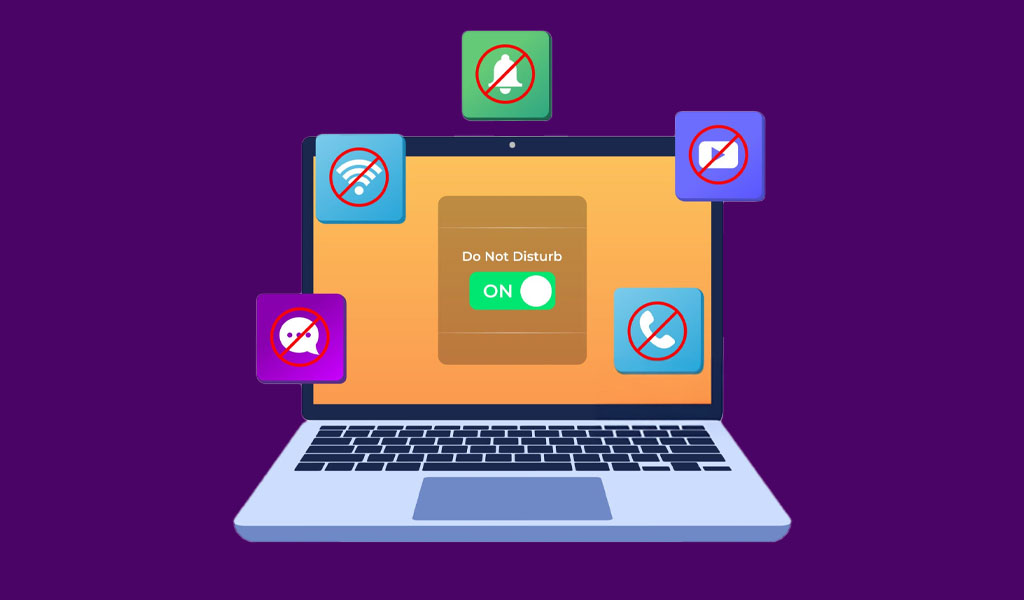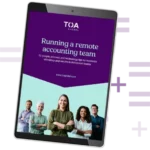Key Takeaways
- What might appear to be extreme passion or commitment to one’s job may actually be a sign of systemic issues, such as imbalanced workload distribution, unclear role expectations, or flawed workplace culture.
- What might seem like sudden slowness, delays of tasks, or indifference at your job or firm might just be you crying for help.
- When you spot burnout symptoms, avoid blaming yourself or bottling everything up. Instead, seek help, speak out, and practice self-compassion.
It was in 1974 when psychologist Herbert Freudenberger introduced the concept of burnout to the world, hoping to capture and explain the chronic exhaustion and overwhelm he observed in caregiving professionals. Since then, the idea has spread across various industries, particularly in accounting.
It’s been over 50 years since, and accounting burnout is a full-blown crisis today. No accountant is immune to it, regardless of skill level or stress tolerance.
But here’s the good news: Burnout isn’t a life sentence! Despite what others might believe, accountants can recognise burnout signs early on and apply smart strategies to build a clear path out—or better yet, around them entirely.
If you’re unsure where to begin, we’ve got you covered! We compiled six practical and strategic tips, tweaks, and takeaways to help accountants reduce their risks and recover smartly in the face of burnout.
The Accounting Burnout Epidemic: Why are So Many Accountants Quitting?

Many accountants are quitting due to factors such as individual stress tolerance, daily work habits, and career commitment. However, while each of these factors can contribute to burnout risk, a deeper issue is at play: A burnout culture that’s not only normalised in the accounting industry but often glorified as well.
Simply put, burnout can be a collective experience as much as it is an individual one. We can see it in the auditor knocking back his eighth espresso, the tax specialist taking pride in her sleepless nights as if they were badges of honor, or the accounting CEO stuck doing low-margin tasks that should be delegated.
Don’t get us wrong, though—we’re all for productivity, efficiency, and pushing for growth. But somewhere between the career highs and record-breaking wins, your health starts slipping, along with the joy you once had for the job.
What might appear to some as passion or commitment to one’s job may actually be a sign of systemic cracks: Poor workload distribution, unrealistic role expectations, or a culture that confuses burnout with bravery.
And when it goes unchecked, we all feel it: One more auditor jumping ship, one more tax specialist missing her son’s recitals on a streak, and one more firm leader losing sight of their “why.”
As CPA and burnout coach Lynnette Oss puts it: Loving your job isn’t enough.
You can’t thrive in a system that rewards pushing people past their limits. You’re human, and you need more than passion to stay well. When work takes over your life, frustration builds, and it starts to show up in your performance, mood, and mindset.
While it’s not that hard to spot, burnout in accounting typically doesn’t shout—it whispers. The key is to catch the signs early, before things unravel.
Don’t Miss the Signs: 5 Accounting Burnout Red Flags to Watch Out For
Noticing a lack of drive in yourself when at work? Well, what might seem like laziness or indifference at your job or firm might be a serious cry for help. Here are five signs of burnout that every accounting professional should be aware of.
1. Emotional Exhaustion
It’s more than just “feeling tired”. When accountants start to feel like they’re running on empty—disconnected, numb, or overwhelmed—it’s a sign that their emotional reserves are tapped out.
Emotional exhaustion is a profound sense of depletion that persists despite a good night’s sleep. This exhaustion erodes motivation, clouds judgment, and chips away at job satisfaction. Accountants can spiral into disengagement, chronic stress, or even depression.
This often sounds like:
- “I’m just so drained. I don’t have anything left in the tank.”
- “It’s too much to keep doing this every day.”
- “This will never end, will it?”
2. Depersonalisation
If you notice anyone becoming more irritable, apathetic, or callous towards others, it may be a sign of depersonalisation. This is when accountants begin to feel emotionally detached from their work or the people they work with. It’s that sense of going through the motions where tasks feel robotic and interactions become transactional.
While depersonalisation helps the brain cope with chronic stress, it does come at a cost: Fading empathy, slipping work quality, and compromised communication that translate into strained professional relationships, output that falls short of set KPIs, and misunderstandings that may even bleed money.
- “Clients are all the same—they just want everything yesterday.”
- “I used to care a lot more, but now I just feel numb.”
- “I’m just here to clock in and get paid.”
3. Frustration and Feelings of Inefficacy
Success in accounting is often tied to precision, deadlines, and problem-solving skills, so when someone is feeling ineffective, it can be especially demoralising. Even high performers can hit a wall when the workload feels never-ending or the results go unnoticed.
Over time, this frustration can lead to disengagement, lower quality of work, or even the decision to leave the profession entirely. For many, it can sound like:
- “What’s the point? They won’t appreciate my work anyway.”
- “I’m not doing enough, and I need to get more things done!”
- “I’m constantly behind.”
4. Conflict Between Work and Personal Life
Accountants often cancel plans, skip meals, or stay just a bit longer at the office, until that becomes the norm. In a deadline-driven field, it’s easy to justify overworking in the name of client service or accuracy.
But when work consistently intrudes on personal time, it erodes boundaries and recovery time, leading to chronic stress. This imbalance is a major burnout red flag because it signals that the job is no longer just demanding, but consuming.
These are what conflict between work and personal life among accountants could sound like in conversations:
- “Even when I’m off, I’m not really off.”
- “I barely see my family anymore because I’m always working.”
- “I can’t remember the last time I took a vacation!”
5. Cognitive and Performance Impairments
Forgetfulness, frequent mistakes, slower thinking, or trouble concentrating are clear signs that something’s off. Cognitive and performance impairments like these aren’t just “off days”; they reflect mental fatigue that’s built up over time. Some examples among accountants could be when routine tasks start to feel mentally taxing. In such cases, the risk of errors increases, and major business disruptions can occur.
Accountants experiencing cognitive and performance burnout often express it in statements like these:
- “I keep making stupid mistakes I normally wouldn’t.”
- “I read the same thing three times and still can’t process it.”
- “My brain just feels foggy all the time.”
Burn It All Down: 6 Strategies to Conquer Accounting Burnout
When we say we want to “burn it all down”, we’re expressing our intense desire for radical change—often stemming from a place of frustration and exhaustion over situations, systems, or, sometimes, oneself.
Perhaps you’ve tried quick fixes, but they haven’t lasted. This is because band-aid solutions don’t go the distance against accountant burnout. The best alternatives? Smart and actionable strategies to conquer burnout in the long term.
1. Leveraging Technology: AI + Automation + Ability

Accounting behemoths like Deloitte, PwC, EY, and KPMG share a common trait: They believe in staying ahead and adapting. They spot problems early, fix what’s broken, and embrace innovation.
Unfortunately, this is what many smaller firms struggle with: A large chunk of them are still stuck in time-consuming manual processes and legacy systems, inevitably leading to bottlenecks, time sinks, and talent burnout.
In this day and age, “sticking to what has always worked” no longer sticks. Your firm needs to keep up with the times and change what needs to be changed.
Utilising technological advancements like AI and automation software isn’t just a perk, but a necessity.
Automating tasks such as tax, invoicing, or AP/AR not only speeds things up but also reduces fatigue and errors. But more important than acquiring the latest accounting software is assembling an integrated and up-to-date tech stack, while also leveraging AI tools for accounting functions, such as forecasting, reconciling, or scanning receipts.
2. Sharpening Your Task Game

While some accountants are naturally adept at managing their tasks, others struggle to juggle them effectively. In some instances, it’s just honest mistakes. However, some employees find themselves stuck in a vicious cycle of procrastination, stockpiling tasks, and cramming them at the last minute.
The result? Mismatched POs and receiving reports, missed month-end deadlines, stolen rest time, and declining mental health. It’s time to get real: You have to break bad work habits before they break you.
Here are some actionable tips to get your tasks in order:
- Categorising your tasks according to priority (low, medium, high)
- Tiering your tasks (administrative, compliance, strategic)
- Checking team capacity (task delegation, reassignment, parking/pushback)
Prioritising tasks and checking your team members’ progress helps create a sense of urgency for tasks that need the most attention, while also breaking down big, daunting projects into digestible, bite-sized pieces.
You may also take cues from our first strategy and utilise technology, such as task management software, to streamline processes for your team.
3. Powering Up Your Skillset

Task management can be tricky, but sometimes it just comes down to skill.
Firm owners need to recognise that talent is their most valuable asset, and setting a budget to help accountants upskill reduces burnout risk and sets them up for success in the workplace and beyond.
For instance, leaders can train their junior accountants, who primarily focus on data entry and assisting with month-end closes, to become full-fledged staff accountants who can handle more complex journal entries and assist with audits as well.
When firms invest in upskilling, it sends a clear message to their talent teams: Your growth matters here. It reignites motivation, strengthens commitment, and helps align individual career paths with the firm’s long-term goals.
4. Calling for Backup: Accountability Partnerships

We can’t stress this enough: Seek support and help!
Despite often staying siloed and laser-focused on their tasks, it still matters for both accountants and firm owners to have dependable support systems, especially during hectic and chaotic phases like tax or audit season.
One way to do it is body doubling, which proves effective in keeping burnout at bay:
While your accountability partner will not do your work for you, their presence can help you ward off distractions and accomplish your tasks with positive reinforcement: Your favorite meal made by your mom, a token or gift from your friend, or maybe even a kiss from your partner.
If you don’t have access to an accountability buddy right now, then seeking support from a mentor, therapist, life coach, or even a well-matched firm can also help in breaking the burnout cycle.
5. Avoiding Burnout Band-Aids

To cope with burnout, accountants often reach for quick dopamine hits. While these offer short-term relief, they don’t address the root causes. This leaves stress to build beneath the surface, leading to further exhaustion, poor performance, and even both physical and mental health issues.
Fortunately, there are healthier alternatives that actually help restore energy and reduce burnout over time. Start by developing healthy habits like stretching, walking, practicing breathing techniques, or journaling.
6. Protecting Your Break Time

Taking breaks isn’t enough—you need to see rest as essential and not indulgent. It’s not laziness but fuel. Once you learn how valuable rest is, you should protect it with clear guardrails. For most, this could mean:
- Avoiding thinking about work during weekends or holidays
- Avoiding checking work-related updates during times off
- Warning your family and friends about your rules on work-related talk
Let’s not forget about remote accountants! Your workplace is most likely also where you rest and recover. Some measures you can take to combat burnout include dedicating a workspace in your room, taking regular breaks between tasks, and having someone check in on you occasionally, without overstimulating or understimulating you.
Read More: Running A Remote Accounting Team
FAQs
Got more questions on accounting burnout? Fire away—we have the facts and figures right here.
What is the Burnout Rate for Accountants?
- 99% of accountants reported experiencing some level of burnout
- 24% of these accountants experience burnout at high levels (MBI score ≥ 60/100) and an average MBI score of 47/100
- 85% of accountants in a study shared that they had to reopen their books at least once in the past year due to errors
- 74% of chartered accountants in the UK experienced burnout symptoms, like exhaustion, detachment, or poor performance
Source: FloQast
What Percentage of Accountants are Happy?
- 94% (on average) of accountants in one study expressed satisfaction with their roles, companies, and overall profession
- 3% think accounting offers many career opportunities and work‑life balance
- 60% of accountants gave their job fulfillment a grade of C or lower
- 58% expressed high confidence in their work
Source: Firm of the Future
Is Accounting a Stressful Job?
Accounting is a stressful job only if you don’t know how to set boundaries at work, manage your tasks well, and listen to your body. Contrary to popular belief, accounting can be a rewarding and fulfilling profession that does not require excessive commitment.
If you want to gain deeper insights into burnout in the accounting profession, tune into this conversation between a founder and chairman of an accounting outsourcing firm and a CPA/burnout recovery coach.
Outsourcing: The Ultimate Burnout Buffer
While smarter recovery strategies can help reduce burnout risks, a more powerful way to address systemic burnout is through outsourcing.
With the right outsourcing partner, you can delegate lower-level yet necessary tasks to dedicated accountants around the world, allowing you not only to cut costs, but refocus your team’s energy on high-value work, and scale your firm with ease.
Prevent accountant burnout with strategic outsourcing—talk to us today.
























